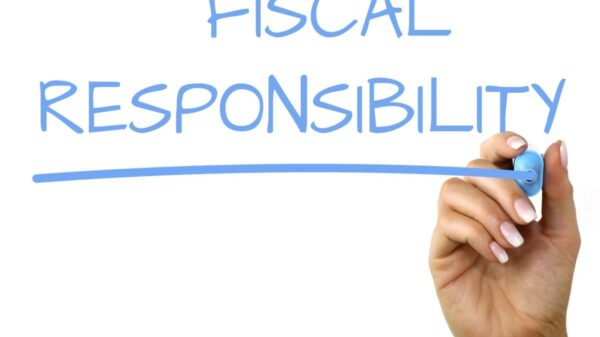Justice And Preventive Intervention For Victims Of Gender Based Violence By Ebun-Olu Adegboruwa (SAN)
Some weeks ago, I was one of the speakers at the International Federation of Women Lawyers’ (FIDA) public lecture for its annual law week, where we had very engaging sessions on the plight of women who go through very traumatic situations purely on account of their gender. Please permit me to share my paper with you.
INTRODUCTION
One of the most potentially traumatic events worldwide is gender-based violence (GBV), including physical and sexual violence against women by an intimate partner or others. At least one-third of women have experienced GBV, which is a global public health issue because of its adverse impact on physical and mental health. Addressing the mental health needs of women who have experienced GBV is particularly problematic in low and middle-income countries (LMICs), where mental health services are often unavailable. Social stigma regarding GBV can be so high that affected women are at risk of further violence or abandonment if they disclose the violence and this can impede women’s drive for assistance. Gender based violence is a common social problem in Nigeria, both in Northern and Southern parts of the country. There has been an increase in the cases of domestic violence, sexual exploitation, forced early marriage, and rape of minors since the spate of Boko Haram insurgency.
Flowing from the above, there has been a growing recognition of the importance of both justice for victims and preventive interventions to combat GBV. This speech therefore explores the critical role of justice and preventive intervention in addressing GBV in Nigeria.
DEFINING GENDER-BASED VIOLENCE
The UN Declaration on the Elimination of Violence Against Women defines violence against women as:
“Any act of gender-based violence that results in, or is likely to result in, physical, sexual or psychological harm or suffering to women, including threats of such acts, coercion or arbitrary deprivation of liberty, whether occurring in public or in private life”.
In the Council of Europe’s Convention on Preventing and Combating Violence Against Women and Domestic Violence (Istanbul Convention), Article 3 offers the following definition:
“Gender-based violence against women shall mean violence that is directed against a woman because she is a woman or that affects women disproportionately”.
Gender-based violence is based on an imbalance of power and is carried out with the intention to humiliate and make a person or group of people feel inferior and/ or subordinate. This type of violence is deeply rooted in the social and cultural structures, norms and values that govern society, and is often perpetuated by a culture of denial and silence. Gender-based violence can happen in both the private and public spheres and it affects women disproportionately.
Using the definition of ‘gender-based violence’ from the Explanatory Report to the Istanbul Convention as a starting point we can say that:
“Gender-based violence refers to any type of harm that is perpetrated against a person or group of people because of their factual or perceived sex, gender, sexual orientation and/or gender identity.”
However, Gender-based violence can be sexual, physical, verbal, psychological (emotional), or socio-economic and it can take many forms, from verbal violence and hate speech on the Internet, to rape or murder. It can be perpetrated by anyone: a current or former spouse/partner, a family member, a colleague at work, schoolmates, friends, an unknown person, or people who act on behalf of cultural, religious, state, or intra-state institutions. Gender-based violence, as with any type of violence, is an issue involving relations of power. It is based on a feeling of superiority, and an intention to assert that superiority in the family, at school, at work, in the community or in society as a whole. Gender-based violence is based on an imbalance of power and it is carried out with the intention to humiliate and make a person or group of people feel inferior and/ or subordinate.
The dictum of the Court of Appeal in HALADU v. FRN 2022 C.A, on the meaning of sexual abuse under Section 1(1) of the Violence Against Persons (Prohibition) Act, 2015 is quite imperative;
“It must be noted clearly that the law is very clear that any penetration of vagina, anus or mouth of another with any part of the body of the offender on the victim encapsulates the commission of the offence of rape under Section 1(1) of the Violence Against Persons (Prohibition) Act 2015 as the emphasis is in any manner and not necessarily vide the penis of the offender if he is a man. The offender can be a man or woman. The intention of the law or the Act is to forbid all manners of sexual abuse or harassment on any person. See Section 45 of the Violence Against Persons (Prohibition) Act 2015 which provides:- “(1) Any offence committed or proceedings instituted before the commencement of this Act under the provisions of the – (a) Criminal Code, Cap. LFN, 2004 (b) Penal Code, Cap, LFN, 2004 (c) Criminal Procedure Code, Cap. LFN, 2004 (d) any other law or regulation relating to any act of violence defined by this Act shall as the case may require to be enforced or continue to be enforced by the provisions of this Act. And sexual abuse under Section 46 of the Act means: “means any conduct which violates, humiliates or degrades the sexual integrity of any person.” Per PETER OLABISI IGE, JCA (Pp 32 – 33 Paras A – D)”
Rachel C. Garthe, … Efren Velazquez, in Encyclopedia of Child and Adolescent Health (First Edition), 2023 defines Gender-based violence (GBV) to include acts of violence that are directed towards an individual rooted in the desire for power and control, and based on sex, gender identity, or gender expression. GBV can include dating or intimate partner violence, sexual violence, femicide, genital mutilation or cutting, human trafficking, and online or digital forms of violence.
Gender-based violence (GBV) is an umbrella term for harmful acts of abuse perpetrated against a person’s will and it is rooted in a system of unequal power between women and men. This is true for both conflict-affected and non-conflict settings.
GENDER BASED VIOLENCE IN NIGERIA
GBV is aggravated in society because men are depicted as more significant, powerful, educated, creative, and intelligent, whereas women are portrayed as the polar opposite of all of these qualities mentioned in male characteristics. GBV is also aggravated in society as a result of the ways certain parents raise their children, which creates a gender gap. For example, if a male grows up thinking that he is not meant to wash his clothes or help around the house, and then marries a lady from a home where tasks are shared among girls and boys, this might lead to resentment and violence as the man attempts to impose his dominance in his house. Violence against women may be traced back to the implementation of strict authority and decisions to create an atmosphere of gender disparity that allows for constant superiority and dominance over the female folk.
The former Minister of Women Affairs, Pauline Tallen OFR, was reported to have said that as of November 22, 2022, that Nigeria has recorded about 11,053 cases of gender-based violence (GBV) going by the information available from the National Situation Room and Data Dashboard. She said this during the 59th edition of the Ministerial Media Briefing organized by the Presidential Communications Team at the Presidential Villa, Abuja.
The incidence of gender-based violence (GBV) is growing astronomically with the activities of the insurgents in the North East. From forced and early marriages to the physical, mental or sexual assault on a woman, 1 in 3 Nigerian women have experienced physical violence by age 15.
Furthermore, the Violence Against Persons (Prohibition) Act (2015), was enacted to prohibit all forms of violence in private and public life and provides the maximum protection and effective remedies for victims and punishment of offenders and for other matters related thereto.
History reveals that women have been relegated to second-class status for ages, while men have always ruled human civilization and dominated their female counterparts through patriarchal cultural beliefs. In most of the global communities of the world, these cultural beliefs have vested so much reference and preference to the male child in the global society. In Arabian culture, for example, the birth of a female child is viewed as a source of shame and humiliation just because of their cultural ideology. On the contrary, the birth of a male child is highly esteemed and celebrated with happiness. Similarly, due to the predilection for male offspring, the birth of a male child in Nigeria, particularly in the south geopolitical zone, thrills family members more than the birth of a girl child. This behavior frustrates the female child as she grows, and women in Nigeria, like women all around the world, are subjected to gender-based abuses regardless of their age, ethnicity, educational qualification, socio-economic class, or religious practice.
O. Akinlusi FM, Rabiu KA, Olawepo TA, Adewunmi AA, Ottun TA, et al. (2014) Sexual assault in Lagos, Nigeria: a five-year retrospective review. BMC Women’s Health, stated that women who are sexually attacked, such as those battered by their intimate partners and spouses, face substantial health, social, and economic implications, which may be instantaneous or delayed based on the gravity of the injuries sustained by the victim. Attempted sexual harassment, according to Akinlusi et al, might have a similar effect and magnitude on the victim as an already completed one. According to him, the medical or health effects of gender-based violence include sexually transmitted infections, unplanned pregnancies, illegal abortions, permanent trauma, instantaneous behavioral reactions such as shock, shame, guilt, and anger; and long-term psychological outcomes such as depression, post-traumatic stress disorder (PTSD), suicidal tendencies, decreased sexual pleasure, and anxieties. Other unfavorable health impacts include mental instability, gynecological difficulties, miscarriage, and injuries or scars that will take time to be healed and even forgotten.
























































